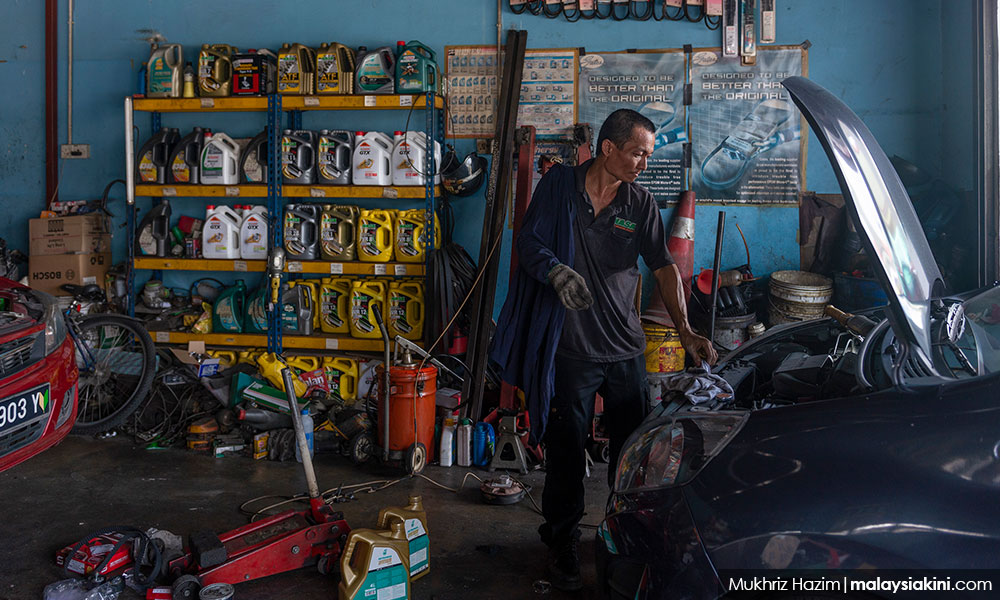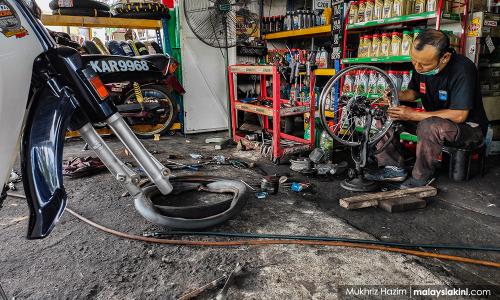MP SPEAKS | Recycled auto parts industry can help save money
MP SPEAKS | The recycled auto parts industry can help consumers reduce their vehicle repair costs, increase the environmental sustainability of the auto sector, and can contribute to the country's external trade.
Malaysia Used Vehicle Autoparts Traders Association (Muvata) president Heng Kim Siang announced that his association is working with their suppliers to offer discounts for their recycled auto parts to flood victims whose vehicles have been damaged in the recent floods.
At the same time, he also expressed the association’s desire to work with the General Insurance Association of Malaysia (Giam) to provide recycled auto parts as a more affordable option for vehicle owners who cannot afford to pay the “betterment” policy for new spare parts.
The importance of Muavata's members and their products and services can clearly be seen after the recent devastating floods in the country.
According to the association, recycled auto parts such as gearboxes, starters and alternators, can cost one-third or one-quarter of the price of a new vehicle part. A new gearbox costs RM2,000 while a recycled one may cost as little as RM500.
Consumers can enjoy significant savings by using safe recycled parts from reliable suppliers. These cost savings are even more important when flood victims must fork out extra money to buy new beds, electrical items and furniture, just to name a few.
No dirty business
At the same time, developing and promoting the recycled auto parts sector can also be environmentally sustainable. As much as 80 percent of a car can be recycled including spare parts, batteries, aluminium, copper, steel and even car windshields.
This industry should be seen as having the potential to be a “green and clean” industry rather than a “dirty, dangerous and difficult” (3Ds) one.

In addition to helping consumers and having the potential to be a “clean and green” industry, the recycled auto parts industry also contributes to Malaysia’s external trade.
According to Muvata, approximately 65 percent of their members’ products are exported to most markets in the developed world such as the United States and Europe.
It is estimated that the global market for recycled vehicles and parts is as much as US$20 billion (RM84 billion) and growing at 5 percent (CAGR) per annum. This means that the activities of Muvata's members also contribute to the economic health of the transportation and logistics sector in the country.
If the right policies are put in place by the relevant government ministries such as the International Trade and Industry Ministry (Miti) and the Environment and Water Ministry, Malaysia has the opportunity to be a regional or even global hub for auto parts recycling and distribution via methods which are “clean and green”.
With this in mind, I call upon Miti to have a dialogue with Muvata to discuss the details of the upcoming implementation of the “Guidelines for the Importation and Inspection of Metal Scrap” which will come into force on Jan 10.
Without taking into account the importation requirements of Muvata's members, the supply of good quality and reliable recycled auto parts may be put at risk.
ONG KIAN MING is Bangi MP and the DAP's assistant political education director.
The views expressed here are those of the author/contributor and do not necessarily represent the views of Malaysiakini.
RM12.50 / month
- Unlimited access to award-winning journalism
- Comment and share your opinions on all our articles
- Gift interesting stories to your friends
- Tax deductable
